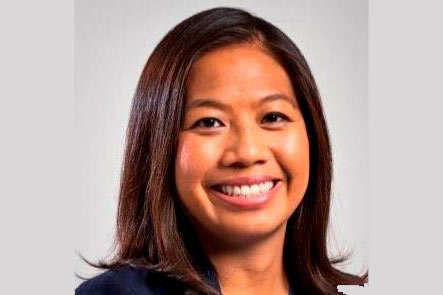Mark Hedin
Ethnic Media Services
Less than a week after the state of Georgia enacted new voting rules, a third federal lawsuit is seeking to have the changes overturned.
The Southern Poverty Law Center, ACLU and NAACP, acting on behalf of religious, student and ethnic minority-serving organizations, allege the new regulations are unconstitutional and violate the federal Voting Rights Act.
“This law (Georgia S.B. 202) is voter suppression, plain and simple, aimed at making it harder for black and brown and other historically disenfranchised communities to have a voice in our democracy,” Sophia Lin Lakin, deputy director of the ACLU’s Voting Rights Project, said in a press briefing March 30.
“It’s an absolutely shameful response to the historic participation by these communities in the last election cycle.”
The organizations represented in the new suit, Sixth District of the African Methodist Episcopal Church v. Kemp, (https://tinyurl.com/SPLCsuit), work primarily in voter registration and education, offer language assistance and providing support such as the water and snacks that S.B. 202 has made a crime to offer in Georgia, said Nancy Abudu, SPLC deputy legal director.
The plaintiffs cite seven aspects of the legislation: its ban on mobile voting; stricter ID requirements for and limits on absentee voting; restrictions on drop boxes, disqualification of out-of-precinct provisional ballots, reductions to early voting and making it illegal to provide water or snacks to people waiting in line to vote.
“Instead of celebrating and encouraging and making it easier for organizations like AME Church to affirm the dignity of black and brown voters — to provide refreshments and encouragement to voters subjected to these lines — Georgia is criminalizing these efforts,” Lakin said.
“This is simply adding insult to injury when you look at the rest of the provisions making it even harder to vote and risking even longer lines.”
S.B. 202 violates the 14th and 15 amendments to the U.S. Constitution and Section 2 of the 1965 Voting Rights Act, Leah Aden, the NAACP Legal Defense and Educational Fund’s deputy director of litigation, said.
This suit, already the third filed within days of S.B. 202’s behind-closed-doors enactment on March 25, does not address aspects such as its giving the state legislature authority to overrule and replace local election officials and the secretary of state.
But those, too, may become litigation targets, Aden said.
“This (lawsuit) is one tool. You need federal legislation; you need state legislation. All angles have to be explored. This case is just one of them.”
The organizations represented here, Aden said, have “relied on voting options that have simply been in place in Georgia for years, including early voting, Sunday voting, and ‘no excuse’ absentee voting” to help people exercise their right to vote.
“Only now, on the heels of ever-growing participation, especially for black voters, do legislators seek to attack voting methods and options that they themselves have relied on and actually benefit their own constituents. The cynicism is clear,” she continued.
The right to vote is under “threats we haven’t seen in decades,” she said, with S.B. 202 and hundreds of like-minded measures under consideration by legislatures in all but a handful of states nationwide.
Key to these efforts, she pointed out, is the 2013 Supreme Court “Shelby v. Holder” decision that ended the “pre-clearance” requirement of the 1965 Voting Rights Act. Since then, states with a history of discriminatory voting rules no longer have to get federal approval before changing them.
“The result,” Aden said, “has been predictable.”
“The passage of S.B 202 is another reminder of why we need federal legislation like S.1 and H.R.4,” she said.
S.1, the House-passed “For the People Act” now before the U.S. Senate, addresses voting rights and campaign financing and calls for independent redistricting panels.
Still in the House is H.R.4, the John Lewis Voting Rights Act, sponsored by Alabama Democratic Rep. Terry Sewell, that seeks to review that 2013 Shelby County v. Holder ruling.
“All voices need to join in the fight against voter suppression,” Aden said. “Everyone needs to be saying something and speaking clearly that unwarranted attacks on the ability of black voters to participate in the political process is morally wrong and bankrupt, it is illegal and it will be met with as much resistance as possible.”
Plaintiffs in the first two suits over S.B. 202 include Black Lives Matter, Stacey Abrams’ New Georgia Project, the League of Women Voters, the Lower Muskogee Creek Tribe and others.
In the new Southern Poverty Law Center-led case, plaintiff organizations are the Delta Sigma Theta Sorority, Inc., Sixth District of the African Methodist Episcopal Church, Georgia Muslim Voter Project, Women Watch Africa, and the Latino Community Fund of Georgia.






